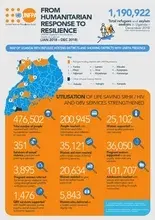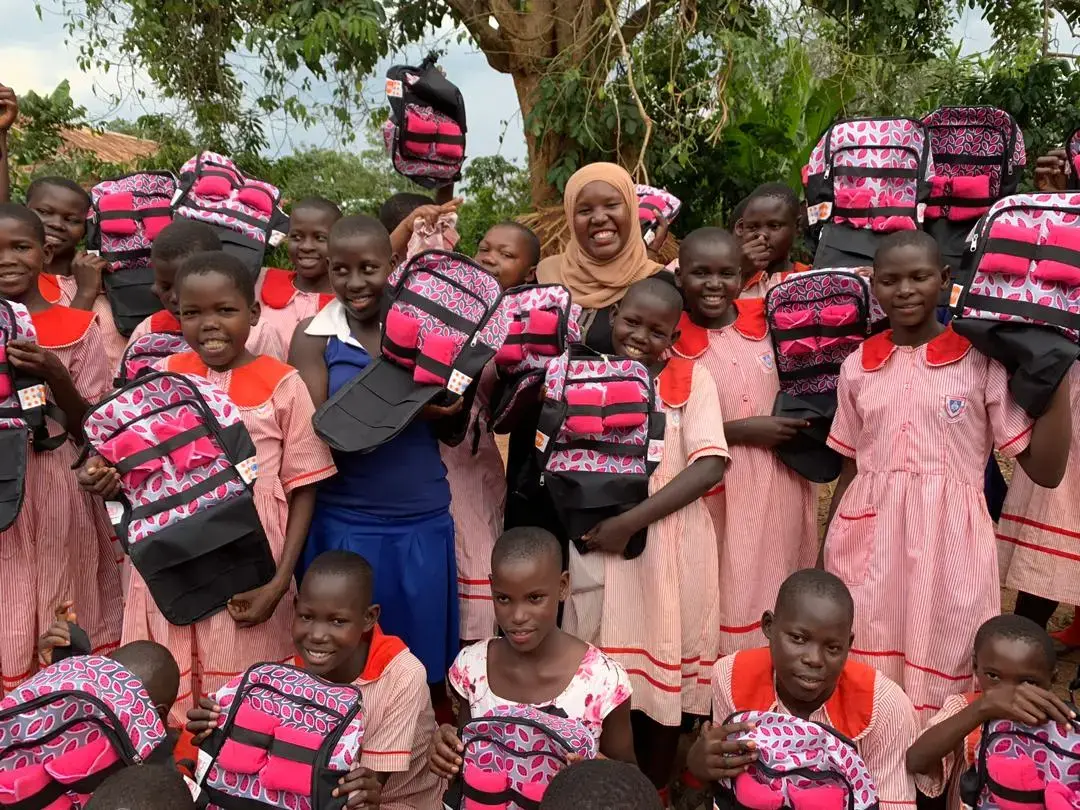ADJUMANI/MOYO/YUMBE: Twelve-year-old Job Andama is a hero in his school. Not that he is superman, but for a great cause of championing the making of reusable sanitary pads used by adolescent girls to make them comfortable during their menses and keep them in school.
“This is how a reusable sanitary pad is made. You need the following: some cotton fabric, a pair of scissors, needle and thread and a button,” says illustrating to his schoolmates consisting of both boys and girls.
Andama is one of the 20 boys in the school health and sanitation club of Mirieyi Primary school in Adjumani district. Consisting of 50 members (20 boys and 30 girls) the club that meets once a week discussing personal hygiene and sanitation issues. Making of reusable sanitary pads is one of the activities of the club. The school hosts both refugees and host communities.
“In the club, we learn how to help girls make their own sanitary pads since the ones sold in the shops are expensive. Girls are now feeling comfortable in the class,” Andama says.
He says after joining the club, he learnt a lot about body changes, menstruation and personal hygiene and how to appreciate girls’ body changes as normal.
“When a girl is in her menses, we do not laugh at her because menstruation is normal,” Andama says. “My sister got married recently. I taught her how to make reusable pads. I also have two aunties with whom I have shared the idea. Even my grandmother knows that I can make sanitary pads.”
Andama’s story shows how involving boys in menstrual matters can support girls manage menstruation, build their self-esteem and keep them in school.
share a moment. Menstruation is not a mystery to them anymore.
PHOTO: UNFPA/Evelyn Matsamura Kiapi.
The Head teacher of the school, Mr Phillip Constantine Vuchiri said having reusable pads available is one way of keeping girls in school: “Our boys are now used to making these pads. They are not afraid to help,” he said.
In Itula Primary school, Moyo district is another champion, 14-year-old Anthony Draga who says the club has made him realize that menstruation is a normal process. Because of the club, he now understands all the signs of menstruation including body changes like abdominal pains and mood swings.
“As a boy, I advise fellow boys to be understanding with girls who are in their menstruation periods. We should not laugh at them and when they are not feeling well, we should advise them to go and rest,” Draga says.
“Boys no longer laugh at me when I menstruate,” says 14-year-old Joy Harriet, a primary seven pupil of Itula Primary school.
Meanwhile, in Drajini Hill High School Yumbe district, under the health and sanitation club, a safe space has been created to give girls privacy when in menses. It is also aimed at preventing absenteeism.
“Since this club was introduced, girls are not missing classes and they are sharing what they have learnt here. The practice is taken back home,” said Head teacher Isaac Toko.
He mentioned that while some parents may not be comfortable talking about menstruation with their adolescent daughters, they should take menstrual health as a priority to enable girls concentrate on their studies:
sanitation club in Moyo district. PHOTO: UNFPA/Evelyn M. Kiapi.
“When parents say sanitary pads are not their business, then sometimes girls may get tempted to find other ways of accessing them which puts their health at risk,” he says.
With funding from the Government of Denmark under the Women, Adolescents and Youth (WAY) empowerment programme, UNFPA supports 56 schools with Health and Sanitation clubs in each of the eight implementing districts of Moyo, Adjumani, Yumbe, Arua, Lamwo, Agago, Amuru and Kitgum.
Implemented in partnership with the Ministry of Health, Ministry of Gender, Labour and Social Development, CARE Uganda, Reach a Hand and Outbox, the five-year programme will enable women and young people among refugee and host communities to live healthy, productive lives and contribute to the development of their communities by strengthening their access to sexual and reproductive health and Gender Based Violence (GBV) prevention services.
- Story by Evelyn Matsamura Kiapi




